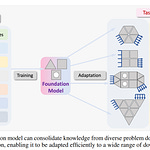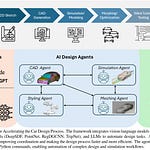This is based off the inspiring publication by professor Karthik Duraisamy:
Duraisamy, Karthik. "Active Inference AI Systems for Scientific Discovery." arXiv preprint arXiv:2506.21329 (2025).
Exploring the limitations of current Artificial Intelligence (AI) systems in achieving genuine scientific discovery, arguing that progress requires a fundamental architectural shift in the models we are using. It identifies three core gaps: the abstraction gap, where AI struggles to reason with high-level scientific concepts; the reasoning gap, which highlights AI's reliance on correlation over causal and counterfactual inference; and the reality gap, detailing the disconnect between computational models and empirical feedback from the physical world. The author proposes an active inference AI architecture to bridge these gaps, emphasizing the integration of internal world models for mental simulation, dynamic knowledge graphs as scientific memory, and robust verification mechanisms for grounding AI's hypotheses in reality. Ultimately, the text advocates for a human-AI collaborative approach to foster true scientific breakthroughs, acknowledging the indispensable role of human judgment in navigating ambiguity and directing discovery.
Here’s a mind map of the podcast:
One of several quotes from the reference text which I really enjoyed:
“…current AI systems are "fundamentally limited to learning correlational structures", whereas "Scientific discovery, in contrast, hinges on understanding interventional and counterfactual logic: what happens when the system is deliberately perturbed?". This "knowledge cannot be passively observed in static data; it must be actively acquired through interaction with the world or a reliable causal model thereof".”









Share this post